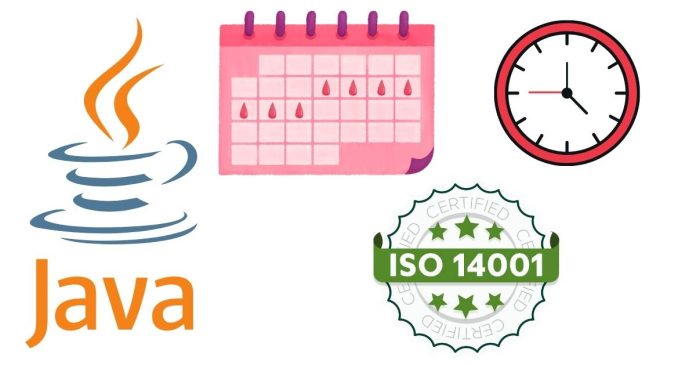The LocalDateTime class in Java is part of the java.time package introduced in Java 8. It represents a date-time without a time zone in the ISO-8601 calendar system. The LocalDateTime class is useful when you need to work with date and time, but the context of the time zone is irrelevant or not required.
Key Features of LocalDateTime
- Date and Time Representation
It includes both the date (year, month, day) and the time (hours, minutes, seconds, and nanoseconds). For example:
2025-01-21T14:30:00. - Immutability
Instances ofLocalDateTimeare immutable, which means once created, they cannot be changed. This ensures thread safety and consistency. - No Time Zone Information
UnlikeZonedDateTime, theLocalDateTimeclass does not contain time zone or offset information. It works purely with local dates and times.
How to Use LocalDateTime
The LocalDateTime class provides several methods to create, manipulate, and retrieve date-time information. Here are some examples:
1. Creating a LocalDateTime
- Current Date and Time:
LocalDateTime now = LocalDateTime.now(); System.out.println("Current Date and Time: " + now); - Specific Date and Time:
LocalDateTime specificDateTime = LocalDateTime.of(2025, 1, 21, 14, 30, 0); System.out.println("Specific Date and Time: " + specificDateTime);
2. Manipulating Date and Time
- Add or subtract days, months, or years:
LocalDateTime dateTime = LocalDateTime.now(); LocalDateTime nextWeek = dateTime.plusWeeks(1); LocalDateTime lastMonth = dateTime.minusMonths(1); System.out.println("Next Week: " + nextWeek); System.out.println("Last Month: " + lastMonth); - Change specific fields:
LocalDateTime adjustedDateTime = dateTime.withYear(2030).withMonth(12); System.out.println("Adjusted Date and Time: " + adjustedDateTime);
3. Formatting and Parsing
- Format a
LocalDateTimeto a string:DateTimeFormatter formatter = DateTimeFormatter.ofPattern("dd-MM-yyyy HH:mm:ss"); String formattedDateTime = dateTime.format(formatter); System.out.println("Formatted Date and Time: " + formattedDateTime); - Parse a string to create a
LocalDateTime:String dateTimeString = "21-01-2025 14:30:00"; LocalDateTime parsedDateTime = LocalDateTime.parse(dateTimeString, formatter); System.out.println("Parsed Date and Time: " + parsedDateTime);
4. Comparing LocalDateTime Instances
- Check if one
LocalDateTimeis before or after another:LocalDateTime dateTime1 = LocalDateTime.of(2025, 1, 21, 14, 30); LocalDateTime dateTime2 = LocalDateTime.now(); if (dateTime1.isBefore(dateTime2)) { System.out.println("DateTime1 is before DateTime2"); } else { System.out.println("DateTime1 is not before DateTime2"); }
When to Use LocalDateTime
Use LocalDateTime when you need to handle date and time without worrying about time zones. For instance:
- Logging events with local timestamps.
- Scheduling tasks that occur at specific local times.
- Storing and manipulating date-time information in systems where time zone context is irrelevant.
Limitations of LocalDateTime
- It cannot represent an absolute moment in time because it lacks time zone or offset information. If you need to handle global or zoned date-times, consider using
ZonedDateTimeorOffsetDateTime.
The LocalDateTime class in Java is a powerful tool for working with date and time in a local context. Its immutability, simplicity, and rich API make it an excellent choice for many use cases where time zone considerations are unnecessary. By leveraging its capabilities, developers can efficiently manage and manipulate date-time data in their applications.


